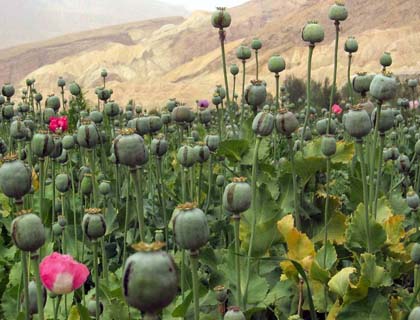KABUL - Poppy cultivation in Afghanistan has declined 40% over the course of past four years as ISAF and government forces have secured key towns and village and ramped up eradication, UN anti drug official said.
This year farmers grew poppy on about 143,000 acres in Helmand province, down from its peak of nearly 256,000 acres in 2008, according to Regional Command Southwest.
"In all countries we see links between cultivation and security," said Angela Me, an analyst at the U.N. Office on Drugs and Crime (UNODC). "The areas that are more secure are where we had less opium."
Since insurgents are supported by drug revenues, the decline in poppy cultivation has cut into the Taliban's ability to launch operations, according to Regional Command Southwest.
"This funding shortfall has led to increased competition between insurgent groups over scarce funds and significantly reduced their ability to sustain operations," Regional Command Southwest said in a statement.
Afghanistan is the source of more than 90% of the world's heroin poppies, and most of the crop comes from Helmand. ISAF forces in Helmand expect to see a 6% to 7% decline in cultivation this year over last. The United Nations said it expects to report that cultivation will be little changed this year.
Poppy farmers were slammed with uncooperative weather this year, which hurt yields, it was the second time in the past three years that yields were hurt by weather.
The overall reduction in cultivation is due to increased security, Afghan government eradication and programs designed to encourage farmers to shift to legal crops, U.N. and military officials said. (Tolo News)

